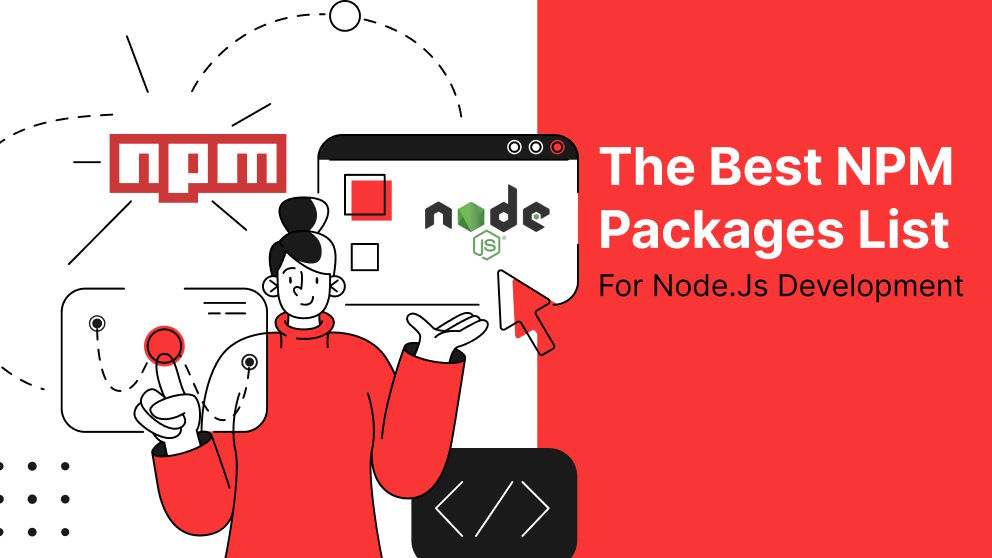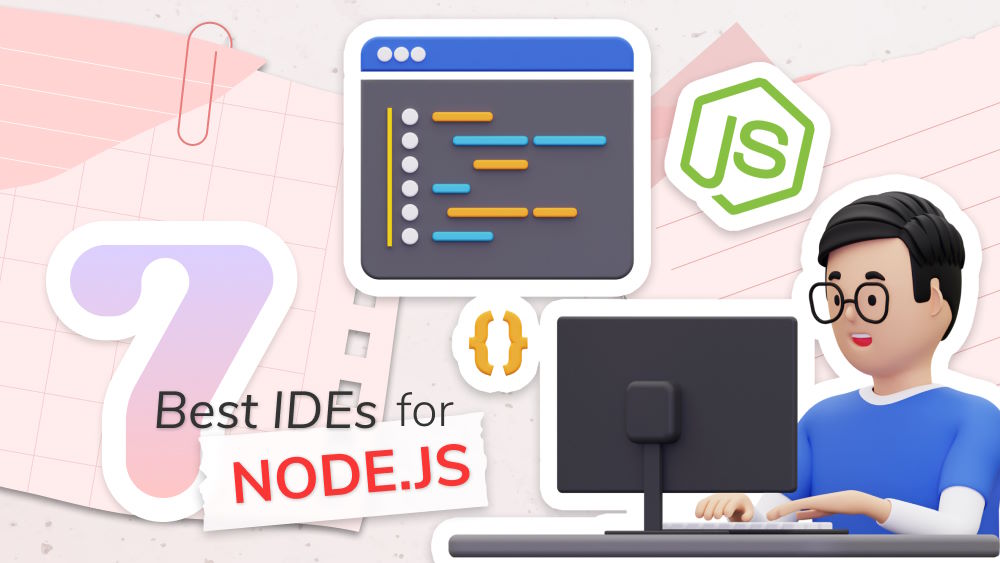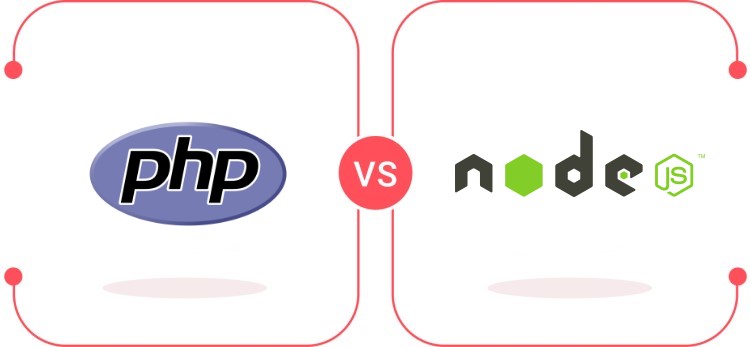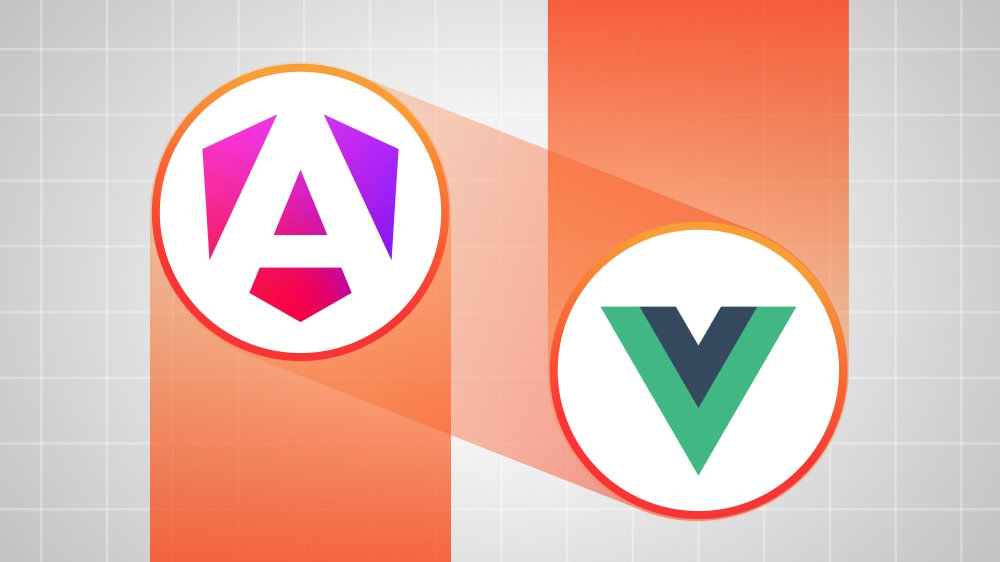Node JS Alternatives for Web Development: What Are They & Why Do You Need Them?
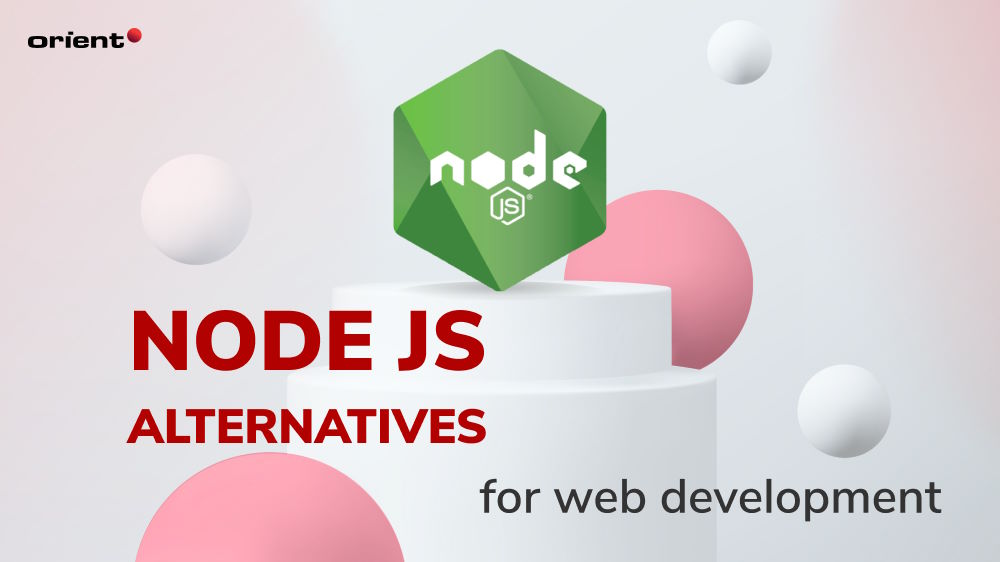
Content Map
More chaptersIt is a fact that Node.js is a JavaScript runtime environment behind many famous platforms such as Netflix, LinkedIn, Amazon, eBay, etc. In 2023, Node.js even overtook React.js to become the most used web framework among software developers worldwide.
However, in the world of ever-evolving programming languages and technologies, acquiring new knowledge and skills becomes an indispensable factor for a developer’s success. While Node.js is known for its excellent performance and scalability, there is no certainty that it will maintain its position and continue to be the preferred choice in the upcoming years as more innovative technologies emerge in the market. Additionally, the best choice of technology for a web application may vary based on its unique characteristics and technical requirements, and what works well for one may not be the optimal choice for another.
That is why individuals, especially JavaScript developers, often seek Node JS alternatives for self-learning and skill enhancement. There are more than 25 alternatives to Node.js currently on the market. Which to choose, what are their strength compared to Node.js, and why do you need them? Get yourself answered by reading this article.
A Glimpse of Node.js

Many beginners misunderstand that Node.js is a programming language or a web development framework. However, it is none of them. To better explain the concept of this technology, let’s take a look at the information below.
What Is Node.js?
Released in the middle of 2009, Node.js quickly received a positive response from the community and became an in-demand technology for any kind of project. Simply put, Node.js is an open-source, cross-platform JavaScript runtime environment enabling developers to create server-side and dynamic web pages.
It is built on the V8 JavaScript engine, which is an engine for executing the JavaScript code outside the browser, leading to faster execution compared to any other traditional interpreted programming language. By using a non-blocking I/O model and event loop, Node.js is an especially efficient and lightweight choice for handling high-traffic loads and concurrent requests.
Why Node.js?
Node.js offers multiple advantages for web and server-side development as below:
- Single Language: Developers can use Node.js for both client-side and server-side development, reducing the complexity when switching between different languages.
- Asynchronous and Non-blocking: Node.js uses a non-blocking and event-driven I/O model, allowing high-traffic applications and real-time application handling.
- Large Package Ecosystem: With a rich package ecosystem called npm (Node Package Manager) that hosts over a million open-source packages, Node.js empowers developers to build web applications while saving time and budget.
- Microservices Architecture: Due to Node.js’s lightweight and modular nature, it is well-suited for building small and independent services that can be scaled easily.
- Rapid Prototyping: Node.js enables developers to test and iterate ideas quickly thanks to its simplicity and the ability to reuse code.
- Community and Support: Node.js has a vibrant and active developer community that provides support through forums, tutorials, and extensive documentation.
- Real-time and Streaming Applications: Node.js’s event-driven architecture and WebSocket support enable efficient real-time applications that require continuous two-way communication like chat applications, communication tools, etc.
- Easy Integration: By offering extensive support for JSON, Node.js has the ability to integrate with various databases, message queues, and third-party APIs.
Why Do Web Developers Seek an Alternative to Node.js?

Technology is constantly evolving. That is the reason, more than anyone else, developers must always keep themselves updated on new technologies and alternatives to existing frameworks and languages to avoid being left behind. Node.js is undeniably a popular runtime environment with its scalability and performance. However, there might be scenarios where developers consider alternatives based on unique project requirements or personal preferences.
Performance and Scalability Limitations
Node.js is favored by web developers largely due to its high scalability. However, this technology also exposes many performance shortcomings when facing specific use cases during software development that Node.js alternatives can clearly handle better. For example, Node.js gives poor performance when it comes to heavy computation, CPU-intensive tasks, or resource-intensive processes, which all potentially introduce bottlenecks and affect overall scalability.
Need for Better-aligned Ecosystems and Libraries
While Node.js has a rich JavaScript library and a large package ecosystem (npm), some web developers may find other alternative frameworks or platforms that better suit their specific needs, including development goals, preferences, and project requirements. The knowledge base of these alternatives may not be diverse compared to Node.js, but they provide what developers are looking for: features that are not available in the Node.js ecosystem, for example.
Language Familiarity Preference
Each developer has his own strengths. Some individuals specialize in the scripting language, while others are strong in the compiled language. Obviously, people can only best complete assigned tasks when properly promoting their strengths. As a result, web developers often tend to choose alternatives that allow them to work with a language they are already proficient in or more comfortable using.
Working with a familiar language helps coders enhance productivity and efficiency. In case an error arises during development, they promptly detect and address the issue. Besides, choosing an alternative that shares similarities with a familiar language can also reduce the learning curve for developers. Without delaying learning and mastering a language, coders can easily deploy the web project, speed up the deployment process, and launch the product to market.
Learning and Growth Opportunities
Developers always strive to expand their skill sets and explore new advancements to stay competitive in the labor market. They can learn new knowledge through many different ways, such as self-study or working with different technologies and frameworks. Seeking Node.js alternatives is a wise choice that enables developers to diversify their expertise and become more versatile in their abilities. By accessing new concepts and emerging trends, software engineers keep their knowledge fresh and up-to-date.
JS Competitors: What Are the Best Node JS Alternatives?

When we discuss the Node JS alternative, we mention alternative web frameworks or technologies that can be used for server-side development instead of Node.js. Each has distinct feature sets, scalability options, and cost considerations.
However, it is worth noting that not all of the names listed below are specifically designed for server-side JavaScript execution like Node.js. Some of them may support other programming languages while offering similar functionality for building web browsers, web apps, and APIs.
Deno
If you are looking for a runtime environment that uses JavaScript as the main programming language, Deno could not be a more suitable choice. Released in 2018 by Ryan Dahl, the original creator of Node.js, Deno is introduced as the next generation of Node.js, which can be seen as a perfect alternative to its predecessor technology.
Deno is an open-source runtime for JavaScript and TypeScript and is compatible with various operating systems such as Windows, Mac OS, and Linux. Playing as an innovative technology, Deno addresses some of the limitations found in Node.js, such as security concerns. By focusing on security, this technology has strong defaults in place to restrict controlled network and file system access. With Deno, developers can import code from various sources, including GitHub and CDNs, to serve the development process, providing a smooth workflow and eliminating the need for external dependencies.
Why do we choose Deno over Node.js?
- Improved Security: With a range of built-in security features such as secure permissions, sandboxed execution, and environment variables, Deno addresses the security concerns found in Node.js web applications.
- Easier Development Experience: Deno doesn’t require additional configurations or tools for TypeScript support, providing a more user-friendly development experience compared to Node.js.
- Native TypeScript Support: Unlike Node.js, Deno has native support for TypeScript without needing a compiler, enhancing code robustness and maintainability.
- Decentralized Module Management: Instead of relying on a centralized package manager like npm on Node.js, Deno allows web developers to import external code directly from URLs.
Golang
Golang, also known as Go, is a programming language developed by Google with the goal of providing a simple, fast, and reliable web development experience for developers. By combining the performance of lower-level languages like C with the ease of use and productivity of higher-level languages, Go is a preferred choice for many developers who need to build high-performance software systems.
Some outstanding features of this Node.js alternative include a strong static type system, garbage collection, and built-in support for concurrency. The strength of Go is its excellent support for concurrent programming. Goroutines, which are lightweight threads included in Go, help developers handle concurrent tasks safely and efficiently when combined with channels for communication and synchronization. With a high level of readability and simplicity, Go is easy to learn and master, even for beginners.
Why do we choose Golang over Node.js?
- Better Code Stability and Reliability: Compared to dynamically typed languages like JavaScript in Node.js, as a statically typed language, Go allows type-checking to be done at compile-time, which leads to better error detection.
- Faster Execution and Improved Efficiency: Go compiles into machine code, resulting in faster execution and improved efficiency compared to JavaScript used in Node.js, an interpreted language.
- Higher Performance: Go is known for its high performance and efficient concurrency model, which can handle CPU-bound tasks efficiently, making it faster than Node.js for many tasks.
Rust
Rust is a systems programming language established by Mozilla in 2006. Based on outstanding features, including memory management, thread safety, and performance, it is a popular choice for businesses that value information security within their systems programming, web development, and backend development. Not only acting as a Node.js alternative, Rust is also a modern alternative to languages like C and C++, enabling web developers to leverage existing libraries and tools.
This programming language offers many useful features for coders, with its ownership system considered one of the most outstanding. With an ownership system, data is accessed and modified with strict rules, making it easier for developers to prevent common programming errors such as data races and memory leaks and fix them at compile-time rather than at runtime. While Rust can accommodate specific aspects of object-oriented programming (OOP), it is a multipurpose programming language that provides much more than just OOP paradigms.
Why do we choose Rust over Node.js?
- Higher Performance: With strict memory management and low-level control, Rust allows web developers to write optimized code that can potentially outperform Node.js in terms of execution speed and memory usage.
- Memory Safety: The ownership and borrowing system on Rust ensures memory safety by eliminating common programming errors, making it less prone to crashes compared to JavaScript programs in Node.js.
- WebAssembly Integration: Bypassing the need for server-side rendering or heavy JavaScript processing, which hinders the web app from full performance, Rust has excellent support for WebAssembly and enables developers to create products that execute directly in the browser.
Ruby
Ruby was developed by David Heinemeier Hansson in 2004 and has since gained widespread adoption and a vibrant community of developers. This language emphasizes the principle of “convention over configuration,” aiming to reduce the need for explicit configuration and enabling developers to focus more on writing application logic. Similar to Python, an object-oriented language known for its simplicity and readability, Ruby is used for a variety of purposes, including prototyping, POC, data analytics, etc.
Ruby on Rails is a popular open-source web development framework written in the Ruby programming language. By following the Model-View-Controller (MVC) architectural pattern and offering a set of conventions and tools, Ruby on Rails is chosen by many developers to simplify the process of building web applications.
Why do we choose Ruby over Node.js?
- Simplicity and Readability: Ruby’s syntax is more elegant and straightforward compared to JavaScript in Node.js, making it easier to code and ultimately leading to increased productivity.
- Testing Capabilities: With the help of Ruby on Rails’s built-in testing frameworks, including unit testing, integration testing, and system testing tools, developers may find it easier to ensure the quality and stability of applications built with Ruby.
- Development Speed: Ruby, especially when used with the Ruby on Rails framework, accelerates development by providing ready-made solutions and automated tools, allowing developers to prototype and build production-ready applications rapidly.
In addition to Deno, Golang, Rust, and Ruby, web developers can consider other options such as Kotlin, Python, ASP.NET, and Java. It is worth noting that Node.js has its own set of advantages. The above names are for reference only. The choice between Node.js and its alternative ultimately depends on your project’s specific requirements, your development team’s existing expertise, and other factors.
Orient Software understands the challenges faced throughout the software development lifecycle. If you require expert advice or web application development services to quickly bring your business ideas to the market, connect with us today.


